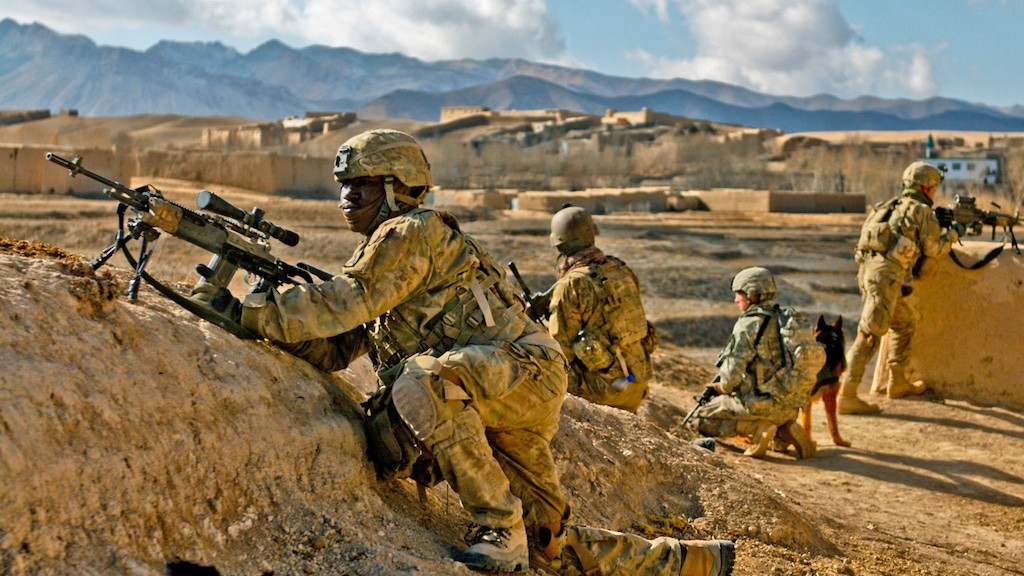“Was the deposed pro-American regime in Kabul saved by being a major non-NATO ally?” asked Nikolai Patrushev, head of Russia’s National Security Council, in an interview last week. “A similar situation awaits supporters of the American faction in Ukraine.”
Patrushev was one of few government officials to make that claim outright. Rather, state media and its allies crafted for Russian audiences the image of a world already turned against the West. As part of Russia’s long-standing strategy of supporting a wide-ranging and disparate assortment of independent media entities, state media outlets amplified their chosen message from pieces published by Ukrainians, Georgians, and Americans, portraying carefully selected articles as representative of the countries as a whole. To audiences at home, the Russian message was that democracies have lost trust in the West.
According to Russian state media, even the United States itself recognizes the hollowness of the major non-NATO (MNNA) ally designation — something that countries like Ukraine, Georgia, and Moldova aspire to but have not achieved. That was the interpretation of an article by Nikolas Gvosdev, a professor at the U.S. Naval War College, published in the American magazine National Interest. The magazine’s publisher is a host on Russian state television and was named in the 2019 Mueller Report as a link between Russia and the Trump campaign. “Watching events in Kabul,” Gvosdev wrote, “a government in Kyiv, or Tbilisi, or Chisinau would wonder whether getting even non-NATO status would bring much benefit.”
Although much of the article focused on the need for the United States to apply the ally label more judiciously, this paraphrasing to emphasize U.S. post-Afghan timorousness was what was highlighted by state newswires TASS and RIA Novosti, leading TV channels TV 5, NTV, and REN TV, and top newspapers Izvestiya and Moskovsky Komsomolets, among dozens more, all government-owned or allied. The headline in Komsomolskaya Pravda, Russia’s most-read newspaper, summed up the Russian portrayal: “In the United States, it is said that Ukraine is under threat due to the situation in Afghanistan.”
In Ukraine, Russia relied on Igor Guzhva, a pro-Russian local journalist. In a popular post, he wrote that the fall of Kabul meant, “you cannot trust the Americans,” that “the Americans will throw in the towel,” and that “there is no hope for the Americans.” He suggested Ukraine abandon its “main geopolitical business in the past seven years — creating problems for Russia.” Guzhva’s piece showed up in newswire RIA Novosti, state television TV360, state radio Vesti, and newspaper Moskovsky Komsomolets, among many others. “Ukraine reconsiders Russian provocation after American flight from Afghanistan,” was a standard headline.
In Georgia, the Russian-allied Alliance of Patriots Party released a statement asking: “Afghanistan and Georgia: Are parallels possible?” The party leaders wrote: “If suddenly the United States, following the example of Afghanistan, decides to leave Georgia, then, naturally, they will not consider themselves responsible either for what happened in the past or for what will happen in the future,” before concluding that Georgia’s future requires a rapprochement with Russia. The open letter received coverage in Sputnik and Krasnaya Vesna, both of which promoted the assertion that Russia was a more reliable partner than the United States.
As covered here previously in Russian involvement in the Fort Detrick conspiracy, Russian propaganda is highly decentralized, with the state and its media outlets rarely creating content from scratch. Rather, when Russia aims to promote a message, state media and its allies rely on partners all over the world to echo its voice.
American weakness and untrustworthiness were the main messages Russian leadership hoped to convey in the wake of the Afghanistan debacle. But — they said — don’t take our word for it. Just look at what people are saying in Ukraine, Georgia, and the United States.




